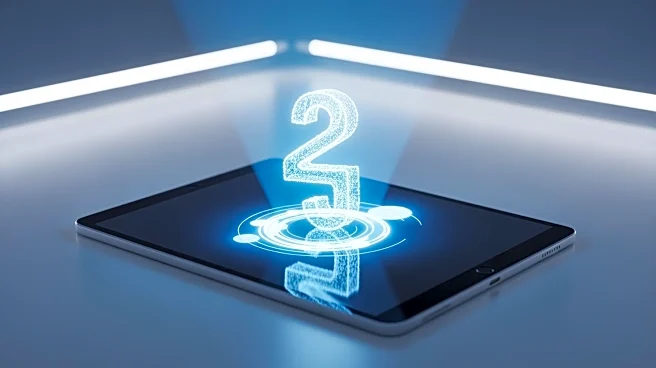What's Happening?
Merriam-Webster has announced the release of the 12th edition of its Collegiate Dictionary, marking the first update in over 20 years. This new edition comes at a time when the publisher is grappling with
the rapid evolution of language in the digital age. The announcement was made through a humorous video on social media, highlighting the dictionary as a 'large language model' that doesn't rely on electricity or data centers, contrasting it with artificial intelligence. The dictionary update reflects Merriam-Webster's ongoing efforts to maintain its role as a key reference for American English, despite the challenges posed by the fast-paced changes in language usage and the rise of digital alternatives.
Why It's Important?
The release of the updated dictionary is significant as it underscores the ongoing relevance of traditional lexicography in an era dominated by digital information. Merriam-Webster's efforts to adapt to modern language trends while preserving historical linguistic records highlight the tension between maintaining authoritative language standards and accommodating the dynamic nature of language. This update is crucial for educators, writers, and professionals who rely on accurate and comprehensive language resources. It also reflects broader cultural shifts, as the dictionary navigates the complexities of language influenced by social media and political discourse.
What's Next?
Merriam-Webster's updated dictionary is set to be published in November, and its reception will likely influence future lexicographical practices. As language continues to evolve rapidly, the publisher may face increased pressure to update its resources more frequently. The dictionary's role in cultural and political debates, as seen in past controversies over definitions, suggests that Merriam-Webster will need to balance traditional lexicographical methods with modern demands for inclusivity and responsiveness. The ongoing dialogue about language standards and authority will likely continue, impacting how dictionaries are perceived and utilized in society.
Beyond the Headlines
The release of the updated dictionary raises questions about the future of language authority in the digital age. As more people turn to online sources for quick information, the role of traditional dictionaries as definitive language guides may be challenged. This shift could lead to a broader discussion about the value of curated, expert-driven content versus crowd-sourced information. Additionally, the dictionary's involvement in cultural debates highlights the ethical considerations of language representation and the impact of definitions on social identity and inclusion.










